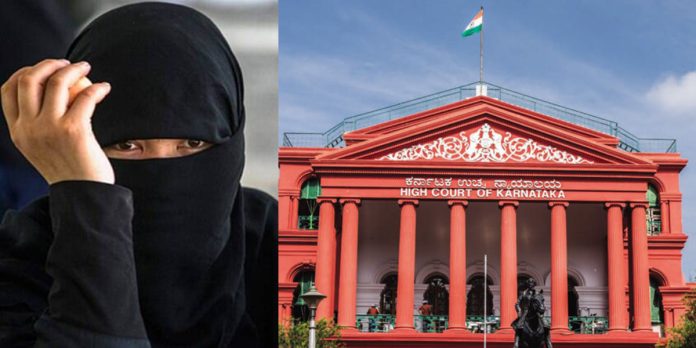- The hijab row that erupted in the Udupi district of Karnataka, where few girl students wanted to wear the same while attending schools and colleges, hogged the headlines across the country and beyond over the last few weeks. The issue is covered in detail and the matter came up for hearing in the high court of Karnataka on expected lines. After a detailed hearing, the full bench of the high court headed by the Chief Justice has delivered the verdict by ruling that hijab is not an essential religious practice in Islam. And in a judgment that recalls those on Sabarimala and triple talaq, the Karnataka high court is broadly right in declaring that educational institutions’ enforcing a uniform isn’t violative of fundamental rights. No questions there.

PC: Kartik mago
- Note that the distinction, as in Sabarimala and triple talaq, was between what is essential to the religion and what may be essentially religious. Further, circumscribing the latter in some contexts is rightly seen as not automatically constitute a violation of practicing one’s faith. Interestingly, the judges didn’t agree with arguments by petitioners that the state government order of February 5 violated their individual rights and collective rights of the community. One of the crucial issues was whether religious freedom as guaranteed by Article 25 of the Constitution was violated by hijab bans by various institutions.
- Here, the court correctly rested its argument on the primacy of institutional norms and goals over a practice that’s not deemed essential for ensuring religious freedom. The court’s observation that the critical purpose of school uniforms is to promote harmony by transcending religious or sectional diversities is to be much appreciated. Also, and in perhaps a necessary reminder of what schools are really about, the judges noted that instilling a scientific temperament in students must take a central role. Of course, in words that should find resonance with all right-thinking Indians, the court said young minds can’t develop so long as any propositions such as wearing of hijab or bhagwa are regarded as religiously sacrosanct and therefore, not open to question.

PC: Dresscoderanchi
- An equally important point given the constant attacks on various institutions by different groups was the judges’ description of schools as qualified public spaces, where certain sensible rules if applied to everyone equally, can’t be deemed as discriminatory to anyone. The key principle here is that a school uniform is a universal requirement, and therefore not sectarian. It is expected that the Supreme Court will be swamped by appeals. In the interim, there’s no room for triumphalism or vigilantism by any group for what is at stake is the education of thousands of girls. Needless to mention, all states including Karnataka should act strongly against attempts by all groups to take the issue to the level of street violence. Over to the Supreme Court now!






